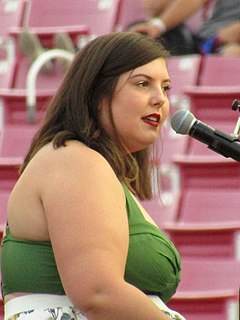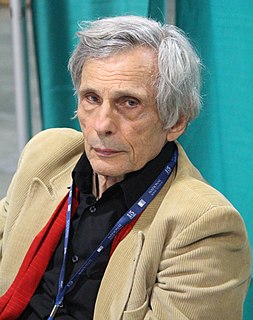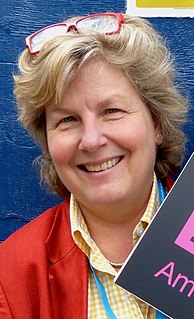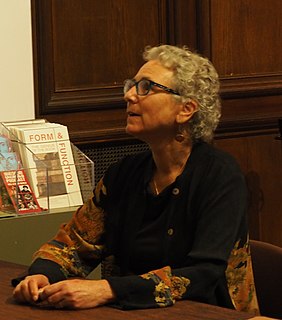A Quote by Francesca Lia Block
I love Sylvia Plath and Anne Sexton. I also love more cerebral poets like H.D. and Emily Dickinson. My parents subscribed to a monthly poetry periodical, and as a teenager I was introduced to Denise Levertov, who was an influence.
Related Quotes
Sappho is a great poet because she is a lesbian, which gives her erotic access to the Muse. Sappho and the homosexual-tending Emily Dickinson stand alone above women poets, because poetry's mystical energies are ruled by a hierach requiring the sexual subordination of her petitioners. Women have achieved more as novelists than as poets because the social novel operates outside the ancient marriage of myth and eroticism.
Poets seem to write more easily about love than prose writers. For a start, they own that flexible ‘I’…. Then again, poets seem able to turn bad love – selfish, shitty love – into good love poetry. Prose writers lack this power of admirable, dishonest transformation. We can only turn bad love into prose about bad love. So we are envious (and slightly distrustful) when poets talk to us of love.
Even the best critical writing on Emily Dickinson underestimates her. She is frightening. To come to her directly from Dante, Spenser, Blake, and Baudelaire is to find her sadomasochism obvious and flagrant. Birds, bees, and amputated hands are the dizzy stuff of this poetry. Dickinson is like the homosexual cultist draping himself in black leather and chains to bring the idea of masculinity into aggressive visibility.
Like all twenty-one-year-old poets, I thought I would be dead by thirty, and Sylvia Plath had not set a helpful example. For a while there, you were made to feel that, if a poet and female,
you could not really be serious about it unless you'd made at least one suicide attempt. So I felt I was running out of time.
You'll always love him" he said, as if he'd read her mind. "That doesn't die just because he did, or because you now love me. Your love for him is part of who you are. It's a beautiful part, Denise. Don't be sad of it, and I will never be jealous of it". Denise's eyes overflowed again. Spade was right.


































